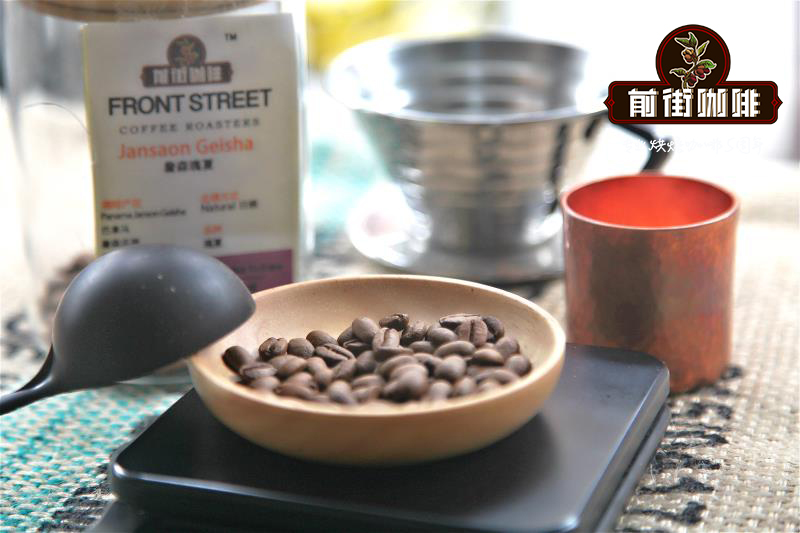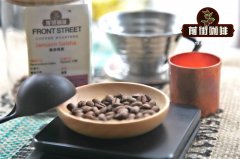What is pre-ground coffee better than freshly ground coffee? How best to drink pre-ground coffee or freshly ground coffee?

Professional coffee knowledge exchange more coffee bean information please follow the coffee workshop (Wechat official account cafe_style)
When you come into contact with boutique coffee, you must hear some golden rules, one of which is "always use freshly ground coffee powder, not pre-ground coffee powder", but is it true?
Let's see how the pre-ground powder is different from our own freshly ground coffee powder.
Reasons to avoid pre-ground powder
Why on earth are you grinding coffee? The aim is to increase the surface area of ripe coffee beans to facilitate the extraction of better flavor and aroma from the coffee. If we throw the whole coffee bean into the water, it will only produce a liquid that is as light as water and lacks aroma.
Grinding means that coffee powder is exposed to water to a greater extent, which enables the substances in coffee to be quickly dissolved in water, thus achieving the purpose of extraction. If you understand the basis of extraction, you will be able to know the advantages and disadvantages of grinding coffee powder in advance.
When the coffee is ground into powder, it will greatly increase the surface area, making the coffee more exposed to the air.
Coffee exposed to oxygen will exhaust, which means that coffee will release gases from the roasting process, and exhaust is very important to avoid insufficient extraction and bubbles of coffee. And grinding will speed up exhaust. The longer you grind the coffee and expose the powder to the air, the more flavor and aroma will be lost. When the coffee powder discharges all the gases, the brewed coffee will be very insipid.
Similarly, coffee powder is more vulnerable to moisture, when coffee beans are damp, it will affect the oil and flavor of coffee.
The surface area is also the reason why fine ground coffee loses its flavor faster than rough grinding.
Is freshly ground powder always good?
It's one thing to minimize the decay of flavor, but is it always good to freshly grind each cup of coffee? It's usually good, but it doesn't apply to every situation.
When we grind, we turn coffee beans into aromatic particles, but if we use a blade grinder or a poor quality grinder, we will get inconsistent grinding results, resulting in many coffee powders of different sizes and shapes.
Inconsistent coffee powder can lead to inconsistent extraction. Speaking of which, let's take a look at the extraction. The substances in coffee beans dissolve into the water at different rates, first sour, then sweet, and finally bitter. When you brew, you must want a cup of coffee with a balanced flavor.
Brewing and grinding the same coffee powder, you can expect the coffee powder to be extracted in the same state, which allows you to master the flavor and aroma more effectively.
When brewing coffee powder with inconsistent grinding, the extraction speed of some powders will be faster, leading to the problem of over-extraction. It is almost impossible to grasp the brewing results, let alone to recreate a good cup of coffee with these randomly sized powders.
Important Notice :
前街咖啡 FrontStreet Coffee has moved to new addredd:
FrontStreet Coffee Address: 315,Donghua East Road,GuangZhou
Tel:020 38364473
- Prev

The meaning of coffee raising beans what do you mean by coffee without beans?
Professional coffee knowledge exchange more coffee bean information please follow the coffee workshop (Wechat official account cafe_style) Coffee as fresh as possible, right? This statement is actually not entirely true. Although no one wants to drink out-of-date old beans, the roasted coffee beans will be boiled directly, and their flavor will certainly disappoint you, because the coffee is still in a state of massive exhaust. Whether you are a baker or
- Next

How about pink bourbon? what are the characteristics of pink bourbon coffee?
Professional coffee knowledge exchange more information about coffee beans Please follow the coffee workshop (official Wechat account cafe_style) bourbon Coffee was originally grown on the island of Reunion, which was also known as le Bourbon before 1789. Bourbon, along with Typica, is the oldest coffee variety in existence. The green fruit appears bright red when ripe. Three sections in Colombia
Related
- Beginners will see the "Coffee pull flower" guide!
- What is the difference between ice blog purified milk and ordinary milk coffee?
- Why is the Philippines the largest producer of crops in Liberia?
- For coffee extraction, should the fine powder be retained?
- How does extracted espresso fill pressed powder? How much strength does it take to press the powder?
- How to make jasmine cold extract coffee? Is the jasmine + latte good?
- Will this little toy really make the coffee taste better? How does Lily Drip affect coffee extraction?
- Will the action of slapping the filter cup also affect coffee extraction?
- What's the difference between powder-to-water ratio and powder-to-liquid ratio?
- What is the Ethiopian local species? What does it have to do with Heirloom native species?

